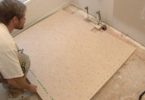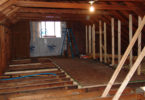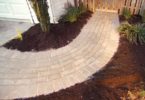Homes in the context of American history were a place to raise a family and conduct other activities. It was not an investment tool. The extra land purchased next to the home was used for business ventures to increase income, but the home was to live in. Consequently, the prices of homes increased in low single digits throughout most of American history. In the last 3 decades, a notion was born that a home must drastically increase in price, making the owner richer, but not in liquid assets.
Recently, the notion of a bubble developed in the housing industry, which most readers have been learning about from the media. The home became the new bank account, where the price rose giving the owner increased equity, and cash could be taken out for a couple of new SUVs. Those days are over for a while.
In essence a home did not do this unless the price was purchased a long time ago and sold a t many times over the original price. If the people were elderly and moved to inexpensive smaller quarters, this profit was worthwhile. Moving in recent history after collecting the profit for the home that was sold, was not a great way to increase wealth. Your new home usually went up in price as did your old home, canceling the profit.
In addition, there are taxes involved in selling, cutting into the profit. In addition, the longer a mortgage was paid, the more money was poured into the home. This is often missed when figuring out the price of a home. Home mortgages, unlike auto mortgages are front-loaded with interest, and by the time the home is paid off, better than twice the original market price was paid to the bank. People have a tendency to be blinded by the immediate profit and not the money that went into a home.
The notion that your mortgage interest is tax-deductible has been a carrot dangling in front of home buyers for a long time. Yes, it is true, but that should never be more than a minor factor in the purchase of a home.
How much is a home worth? This is relative to the area and the home. One thing is for certain. When living in a community of similar homes, putting a lot of money into a home and jacking up the price will not be successful. Homes in a similar area tend to be viewed as similar in price. A buyer is not going to purchase a home on a block at much higher a price than those of its neighbors.
On the other hand homes that are on a block with a foreclosed homes will drop in price because of that blight on the block. Many people put money into their homes thinking it will be recovered when the home is sold. Only a small portion of the money is recovered. Hopefully, the improvements were made primarily for the comfort of the home owner and for a better appearance.
A home is worth what the market will bear. If prices are rising, “a high tide raises all boats.” It also works in the reverse. But, real estate prices are not written in stone. In areas abroad like Hong Kong and domestically like New York City, prices did not fall all that much in the recent downturn. This is because of the limited area in which to expand and build homes. This keeps a tight reign on a precipitous fall in prices in such areas. Every area is unique.
Home prices are generally stabilizing now and perhaps will rise 1%-2% per year. They will not double in price after 10 years as in the past. At least not until a new bubble in housing forms. Enjoy your home and keep it in excellent condition and money will not be lost. Those that did lose money recently should not have purchased a home for two reasons. Many could not afford it and after a huge bubble, the value was due to drop leaving many “under water.”






